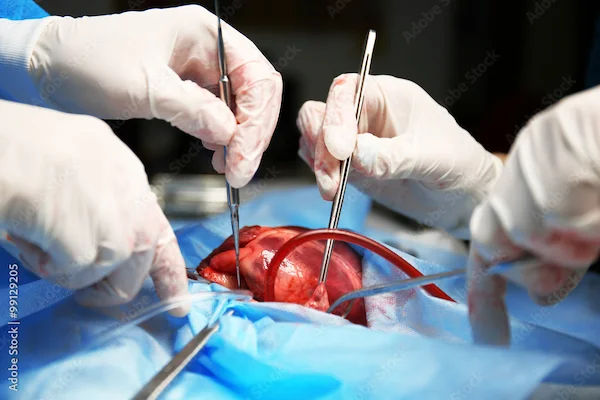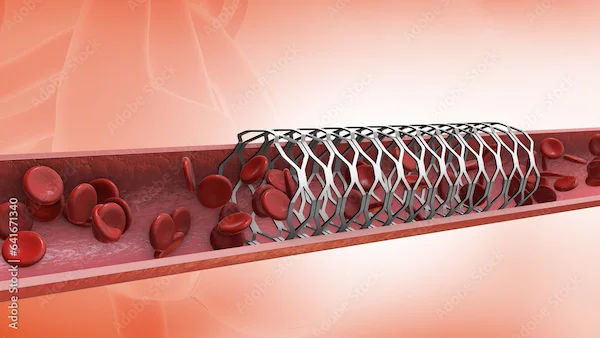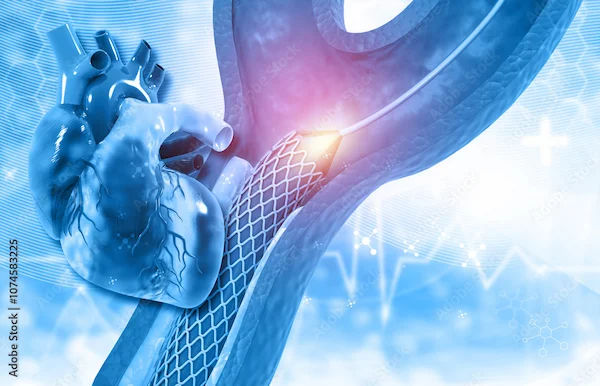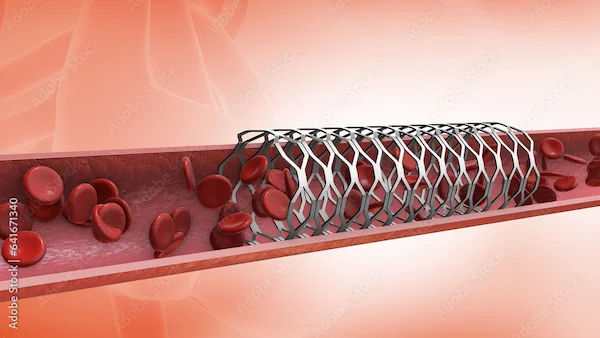Signs to Identify a Stroke
Learn to recognize the critical signs of a stroke instantly with the FAST acronym: Face drooping, Arm weakness, Speech difficulty, Time to call emergency. Early identification is key to effective treatment and better outcomes.


A stroke is a medical emergency that occurs when blood flow to a part of the brain is interrupted, either due to a blockage (ischemic stroke) or a burst blood vessel (hemorrhagic stroke). Without immediate treatment, brain cells begin to die, leading to long-term disability or even death. Recognizing the signs of a stroke early can save lives and improve recovery chances.
This article will help you understand the key warning signs of a stroke, why quick action is crucial, and how to reduce your risk.
How to Spot a Stroke: Remember "FAST"?
The easiest way to identify a stroke is by remembering the acronym FAST:
F – Face Drooping
- Does one side of the face droop when the person smiles?
- Is their smile uneven?
A – Arm Weakness
- Can the person raise both arms equally?
- Does one arm drift downward or feel numb?
S – Speech Difficulty
- Is their speech slurred or hard to understand?
- Are they unable to repeat a simple sentence correctly?
T – Time to Call Emergency Services
- If any of these signs are present, call for help immediately.
Other Possible Stroke Symptoms
In addition to FAST, watch for:
- Sudden confusion or trouble understanding speech
- Severe headache with no known cause (often described as the "worst headache ever")
- Vision problems in one or both eyes
- Dizziness, loss of balance, or trouble walking
Note: Symptoms can appear suddenly and may worsen quickly. Not all signs must be present—even one symptom is reason enough to seek emergency care.
Why Acting Fast is Crucial?
Every minute counts during a stroke. The longer the brain is deprived of oxygen, the higher the risk of permanent damage.
- Ischemic strokes (caused by a clot) can be treated with clotbusting drugs (like tPA), but these must be given within 3 to 4.5 hours of symptom onset.
- Hemorrhagic strokes (caused by bleeding) require immediate surgery to stop the bleeding.
Delaying treatment increases the risk of:
- Paralysis or weakness on one side of the body
- Memory loss or difficulty speaking
- Long-term disability
Call emergency services (like 108 in India) instead of driving to the hospital yourself. Ambulance teams can start lifesaving care on the way.
Who is at Risk of a Stroke?
Some risk factors cannot be changed, but many can be managed with lifestyle changes.
Uncontrollable Risk Factors:
Age (risk increases after 55)
- Family history of strokes
- Gender (men have a higher risk, but women are more likely to die from strokes)
- Previous stroke or ministroke (TIA)
Controllable Risk Factors:
- High blood pressure (the leading cause of strokes)
- Diabetes (uncontrolled blood sugar damages blood vessels)
- High cholesterol (can lead to artery blockages)
- Smoking (narrows blood vessels and increases clot risk)
- Obesity & lack of exercise
- Irregular heartbeat (Atrial Fibrillation) (increases clot risk)
How to Reduce Your Stroke Risk?
Ways to reduce your stroke risk:
1. Monitor and Control Blood Pressure
- Check your BP regularly.
- Follow your doctor’s advice on medications.
- Reduce salt intake and eat more fruits, vegetables, and whole grains.
2. Keep Cholesterol in Check
- Avoid fried and processed foods.
- Exercise regularly (30 minutes a day, 5 days a week).
3. Manage Diabetes
- Monitor blood sugar levels.
- Follow a balanced diet and take prescribed medications.
4. Quit Smoking and Limit Alcohol
- Smoking doubles stroke risk—seek help to quit.
- Excessive alcohol raises blood pressure—limit to 1 drink per day for women, 2 for men.
5. Stay Active and Maintain a Healthy Weight
- Walking, swimming, or yoga can improve heart health.
- Losing even 5-10% of body weight helps reduce stroke risk.
6. Recognize and Treat Atrial Fibrillation (AFib)
- AFib increases stroke risk by 5 times—get an ECG if you have irregular heartbeats.
Consult Top Heart Specialists
What to Do If You Suspect a Stroke?
Things to do if you suspect a stroke:
1. Call emergency services immediately—do not wait to see if symptoms improve.
2. Note the time when symptoms started (this helps doctors decide on treatment).
3. Keep the person calm—do not give food, water, or medicine.
4. If they lose consciousness, place them on their side to prevent choking.
When to See a Doctor?
Even if symptoms disappear quickly (as in a ministroke or TIA), seek medical help. A TIA is a major warning sign that a full stroke may follow.
If you or a loved one has risk factors like high BP, diabetes, or a history of strokes, regular checkups are essential.
Apollo 24|7 offers expert neurology consultations and stroke risk assessments. You can book a test or speak to a specialist for personalized advice.
Final Thoughts
Strokes can happen suddenly, but knowing the warning signs (FAST) and acting quickly can save lives. By managing risk factors like high blood pressure, diabetes, and smoking, you can significantly lower your chances of a stroke.
Remember: Time lost is brain lost. If you see any stroke symptoms, call for help immediately.
Stay informed, stay healthy!
Consult Top Heart Specialists
Consult Top Heart Specialists

Dr. Tripti Deb
Cardiologist
40 Years • MBBS, MD, DM, FACC, FESC
Hyderabad
Apollo Hospitals Jubilee Hills, Hyderabad

Dr. Bhukya Pavan Kalyan
General Physician
5 Years • MBBS DNB Paediatrics
Bengaluru
PRESTIGE SHANTHINIKETAN - SOCIETY CLINIC, Bengaluru

Dr. Anand Ravi
General Physician
2 Years • MBBS
Bengaluru
PRESTIGE SHANTHINIKETAN - SOCIETY CLINIC, Bengaluru

Dr. Zulkarnain
General Physician
2 Years • MBBS, PGDM, FFM
Bengaluru
PRESTIGE SHANTHINIKETAN - SOCIETY CLINIC, Bengaluru
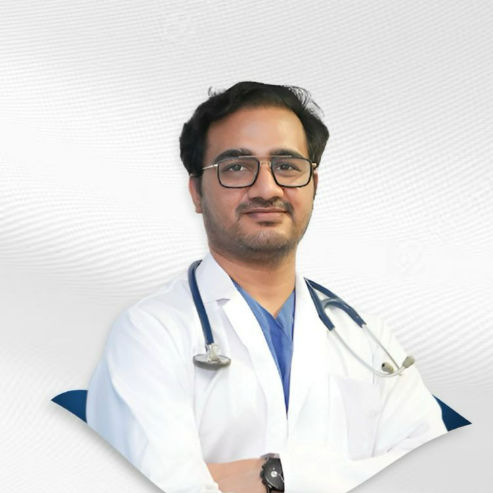
Dr. Janjirala Seshivardhan
Cardiologist
7 Years • MBBS,DNB(GM),DM(Cardiology)
Manikonda Jagir
Apollo Clinic, Manikonda, Manikonda Jagir
Consult Top Heart Specialists

Dr. Tripti Deb
Cardiologist
40 Years • MBBS, MD, DM, FACC, FESC
Hyderabad
Apollo Hospitals Jubilee Hills, Hyderabad

Dr. Bhukya Pavan Kalyan
General Physician
5 Years • MBBS DNB Paediatrics
Bengaluru
PRESTIGE SHANTHINIKETAN - SOCIETY CLINIC, Bengaluru

Dr. Anand Ravi
General Physician
2 Years • MBBS
Bengaluru
PRESTIGE SHANTHINIKETAN - SOCIETY CLINIC, Bengaluru

Dr. Zulkarnain
General Physician
2 Years • MBBS, PGDM, FFM
Bengaluru
PRESTIGE SHANTHINIKETAN - SOCIETY CLINIC, Bengaluru

Dr. Janjirala Seshivardhan
Cardiologist
7 Years • MBBS,DNB(GM),DM(Cardiology)
Manikonda Jagir
Apollo Clinic, Manikonda, Manikonda Jagir
